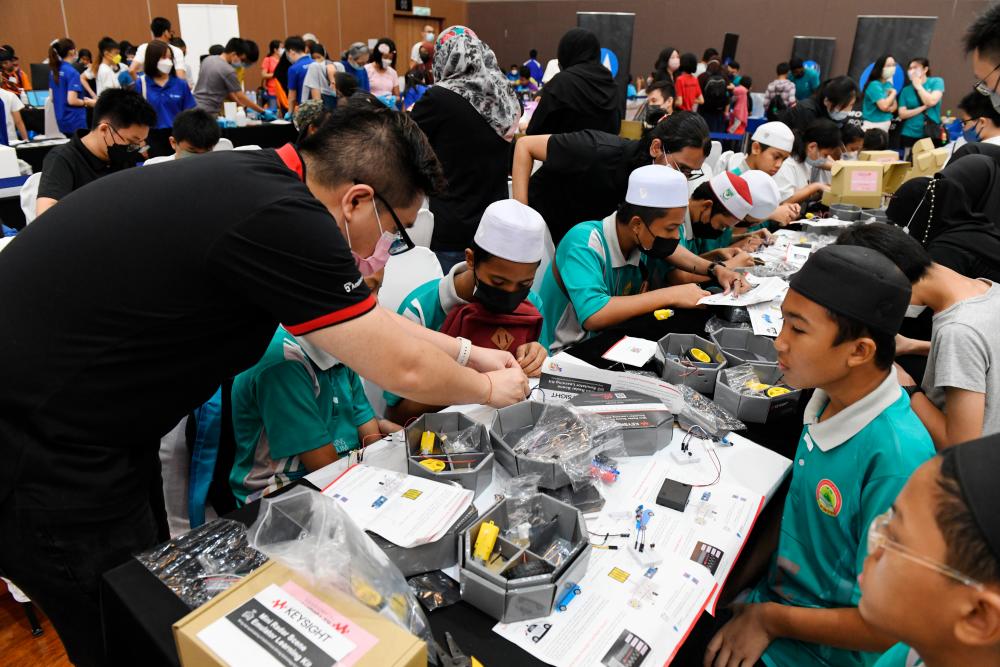PETALING JAYA: The 2023/2024 school session has seen the lowest enrolment numbers in the history of students opting for the Science stream in Form Four, with only some 62,250 out of about 415,000 Form Three students nationwide choosing it.
Ikatan Guru-Guru Muslim Malaysia president Mohd Azizee Hassan attributed the problem to the fact that many students do not receive a strong enough foundation in Mathematics and basic sciences during their early education.
“This makes it difficult for them to grasp more complex concepts in pure science subjects at the secondary level, which is why they opt out of the stream.”
He said in 1967, the Higher Education Planning Committee set a goal to ensure the country has human resources in the science field, with 60% of school students required to enrol in the science stream.
Mohd Azizee said if the current trend persists, it will impact the 60% policy goal of students opting for pure science, which encompasses Science, Mathematics, Engineering, and Technology (STEM) subjects.
He said many students struggle with pure science subjects such as Physics, Biology and Chemistry due to a weak foundation in Mathematics and Science, resulting in them being unprepared and unsuitable for the science stream.
The emphasis on higher-order thinking skills (HOTS) in examinations has increased over the years, requiring students to engage in more complex problem-solving, critical thinking and analytical reasoning, which add to their challenge.
He said students with weak foundational knowledge in Mathematics and Science find such subjects particularly challenging, which further discourages them from choosing the Science stream.
“The complexity of HOTS-based examinations can be intimidating and make students feel overwhelmed by the need to understand the content and the necessity of applying it in sophisticated ways.
Mohd Azizee said other countries have adopted hands-on and experimental teaching methods, which are more engaging and foster a scientific mindset.
“But we are still relying on examination-oriented learning which is outdated.
“Updating our teaching methods could make science subjects more appealing and accessible to students. High-quality teaching can make a significant difference in students’ interest and performance in Science subjects.”
Universiti Teknologi Mara (UiTM) academic development director Assoc Prof Dr Suriyani Ariffin said investing in the training and development of STEM teachers is crucial to address the decline in enrolment.
“Integrating more practical and engaging STEM applications into the curriculum is vital. This approach makes learning more relevant and interesting for students by showing them how STEM concepts apply in real-world situations.”
Suriyani said universities have seen a similar trend, with a significant decrease in the enrolment of students in engineering programmes over the past decade.
Engaging students in community-based engineering projects to solve real-world problems and strengthening ties with industry to ensure curriculum relevance and job readiness are also crucial components of this adaptive approach to learning.
“This issue needs to be tackled effectively, as the impact on the diversity of engineering programmes would be significant.
“Universities might opt to decrease the number of specialised engineering programmes due to declining enrolment and prioritise more mainstream disciplines instead, causing the country to lose out,” she said.









